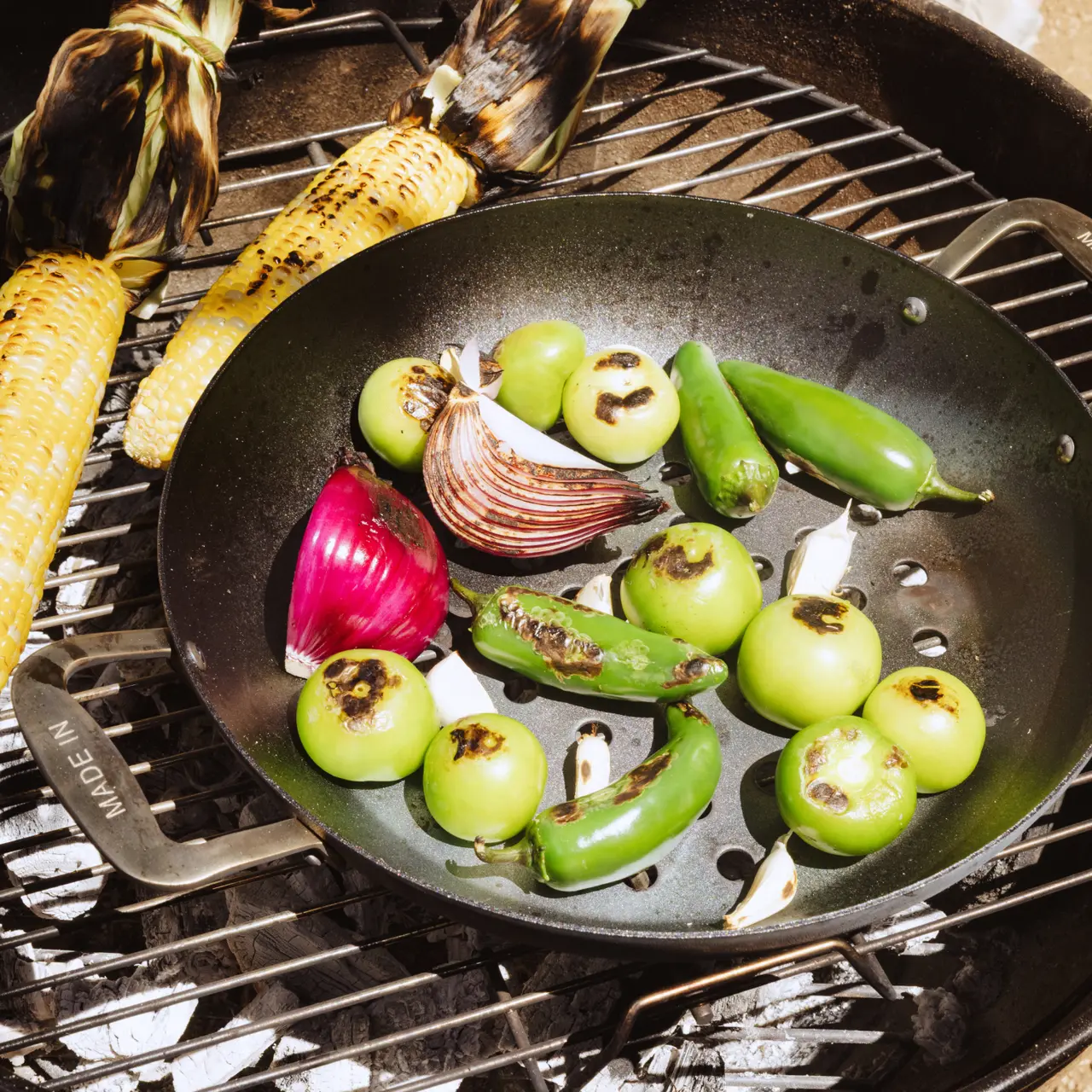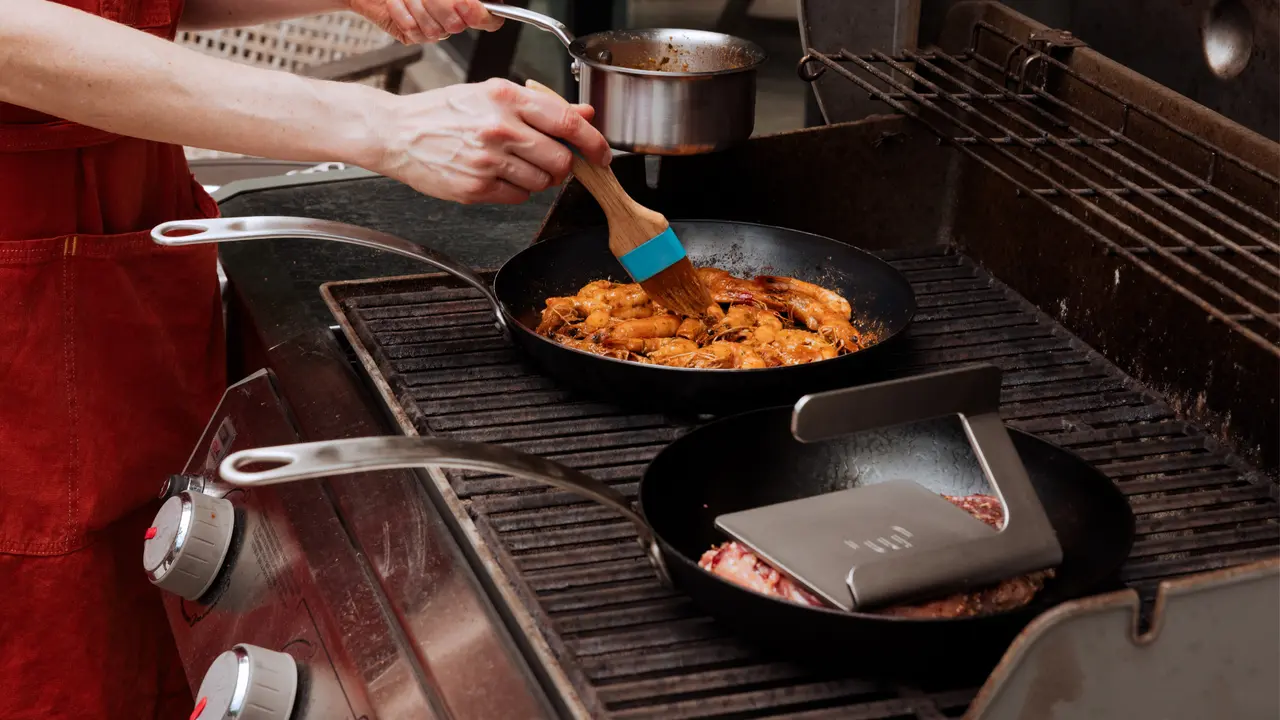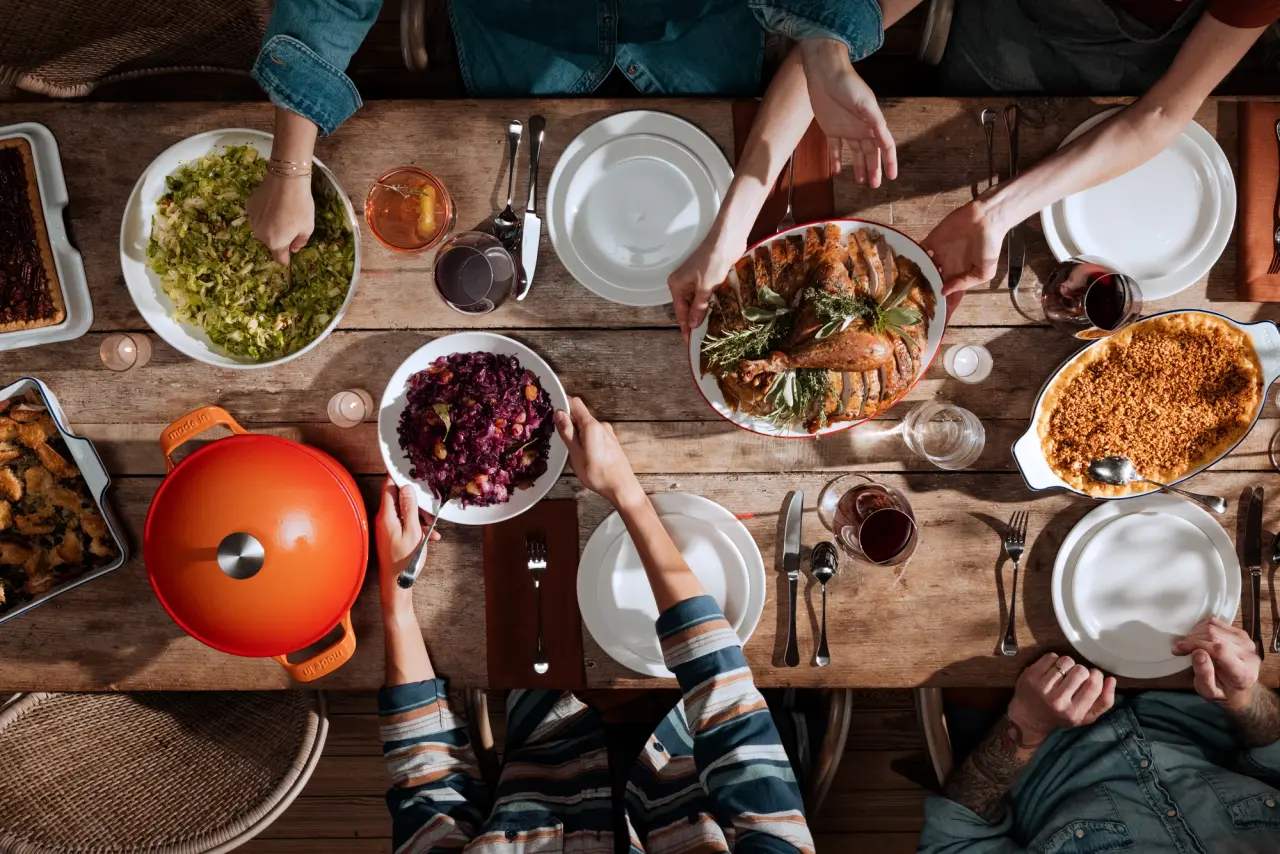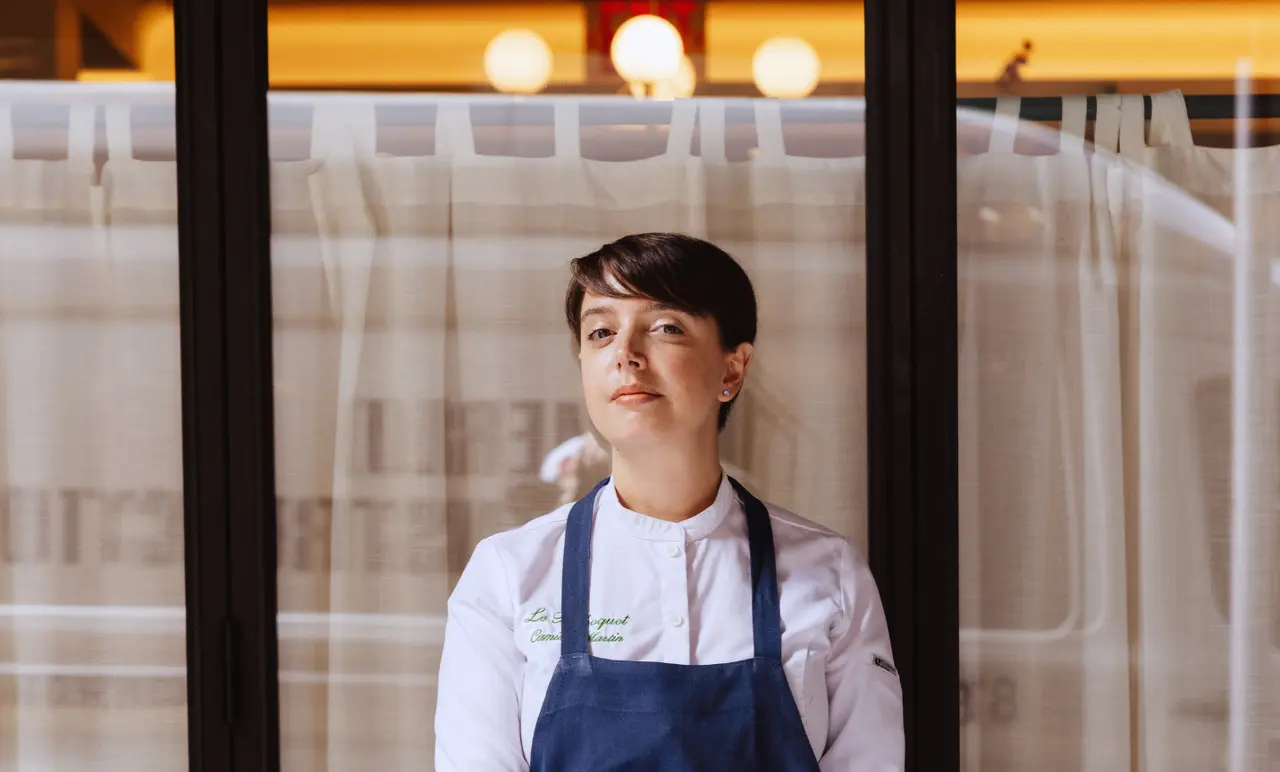For each purchase of our Red and White Wine Glassware Set, we’re donating 15% of the sales price to support Wine Unify—meaning not only do our newly redesigned Wine Glasses look good, but they do good, too.
When we speak, Alicia Towns Franken—a veritable wine luminary—has just gotten back from the 40th annual Food & Wine Classic in Aspen, Colorado, where she and four partners co-hosted the second annual Black on Black dinner. Tickets for the one-night event, which featured Black winemakers and purveyors alongside a meal prepared by James Beard Award-winning Chefs JJ Johnson and Nina Compton, were predictably hard to come by. But for those who managed to snag one of the 80 available seats, it was “a joyful and emotional four-hour celebration of the wine industry’s most influential Black leaders.” The waitlist, Alicia says, was about 300 names long.
“Some of the NBA stars who have wine—Carmelo Anthony, Dwyane Wade, CJ McCollum, Channing Frye, Chris Paul—joined us this year,” says Alicia (much more casually than I would). “Along with their amazing business partners, the players are exposing new communities to wine and really pushing the conversation on diversity.”
For a while, wine was the exclusive domain of privileged white men; to be honest, it mostly still is. A bird’s eye view shows an industry dominated by a globally niche palate, largely defined by Western and Eurocentric appellations, styles, producers, and grapes. Much like a Habsburg, the homogeneity is stunting it.
Which brings us back to Alicia, who, from the sound of it, has evolved beyond sleep. In addition to Black on Black, Alicia has been working on a forthcoming wine label (a non-profit that reinvests profits in the winemakers—all women of color—behind each bottle) and serving as the Executive Director of Wine Unify (a non-profit focused on creating a more equitable and inclusive wine industry).
She sees the organization’s role as very straightforward: “We want to welcome, elevate, and amplify voices of color in the industry.”
The Wine Industry Is (Somewhat) Broken
Wine wasn’t always so elitist. “We've taken something that used to be an ingredient on most tables and made it into this very exclusive club,” she says. “I think that it’s somewhat broken.”
Even for the casual drinker, wine feels like it comes with a steep learning curve. Yet for up-and-coming wine professionals of color, the numerous barriers to entry—economic or otherwise—are even steeper. Wine Unify assists with these obstacles by paying for certifications through the Wine and Spirit Education Trust and providing resources like glassware and extra wine to study.
But Wine Unify’s work extends beyond financial support. “For some mentees, lack of funding isn’t what brings them to Wine Unify. It might be a lack of community,” says Alicia. “If people of color aren’t seeing themselves in the wine space, they might think they don’t belong there, either as professionals or as consumers.”
She’s speaking from experience. “When I was the wine director of Grill 23 & Bar in the 90s and early 2000s, it was like being alone on an island,” she says. “To see other wine professionals of color, I had to travel from Boston to either New York or California.”
Having found success and community despite that early isolation, Alicia is hopeful that Wine Unify will change the narrative for a new wave of professionals and enthusiasts. “We initially started with 20 mentees, and then all of a sudden it was 30, 50, 100. Now it's closer to 150,” she says. “We’re creating space for people who didn't realize they belong here.”
But if the ethical argument for making wine more inclusive doesn’t move the powers that be, financial gain might: “About 28% of boomers are non-white, but Gen Z is about 50% of color. If wine companies aren’t marketing to or including people of color in their decision making, then they're losing out,” she continues. “New and young drinkers will go where they feel comfortable. You don't have to take a test to enjoy White Claw—you just open the can and you're ready to go.”
(I am skeptical as to whether Alicia has ever actually tried a White Claw, but her point is taken.)
So, How Do We Democratize Wine?
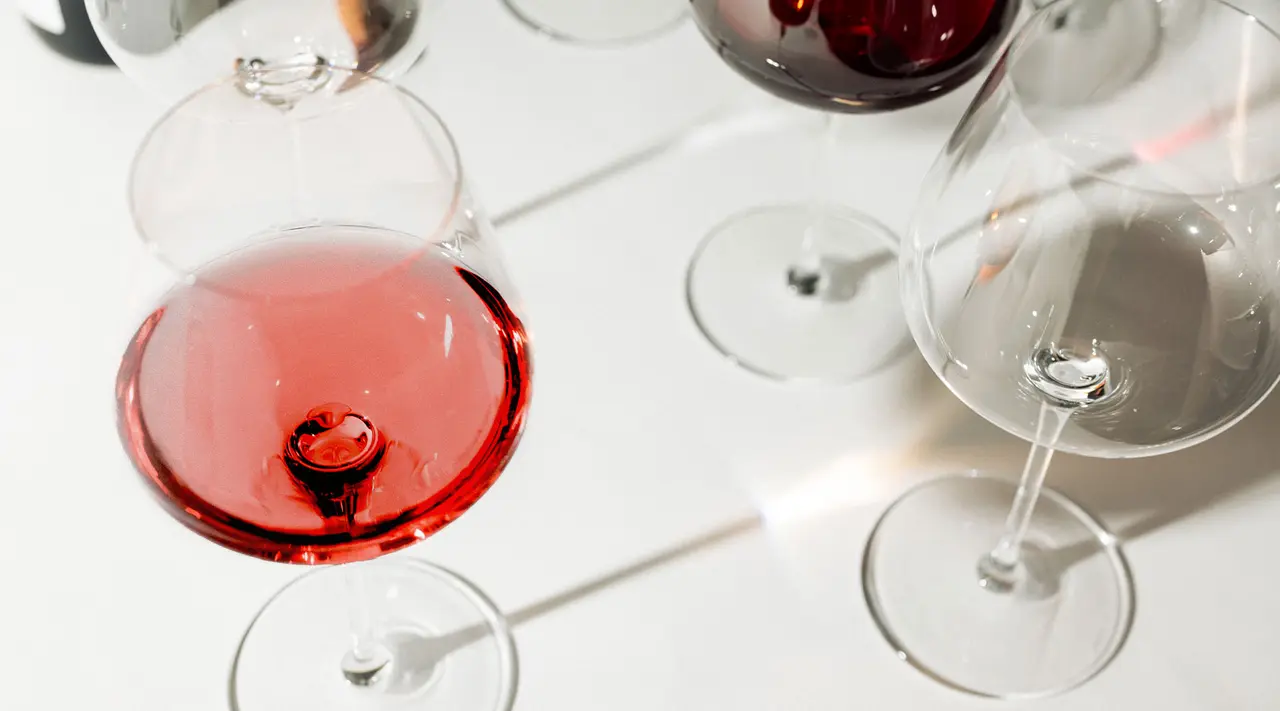
“I've always wanted to help democratize wine,” says Alicia. Asked what that looks like, she offers a simplified answer: “For everyone to feel comfortable, and for drinkers to trust their own palates.”
As for the matter of realizing that vision, access is key. And this doesn’t just mean more somms who aren’t white—the wine industry is vast, and Wine Unify acknowledges the myriad ways of engaging with it. “We offer recipients master classes on every aspect of the industry,” says Alicia. “We've had wine professionals come on to talk to them about marketing, the science of aromas, brand building, and developing sales teams.” She could go on.
Mentees also gain invaluable access to industry events. “Two are heading to Napa in August, all expenses paid by Napa Valley Vintners. And Napa Valley Wine Academy is sending another of our mentees to Piemonte, Italy,” says Alicia. Healdsburg Wine and Food Experience flew out four other Wine Unify recipients for a few days of education, networking, and volunteering, and another joined Alicia at the Aspen Food and Wine Classic, courtesy of Food and Wine Magazine.
Yet the biggest way Wine Unify has made a difference is through community-building. “I think the most impactful part of Wine Unify is the mentorship. All of our mentors are of color, and they’re some of the best in the industry,” she says. “No one’s on an island by themself.”
What’s Next for Wine Unify?
“I was recently speaking on a panel, and while prepping the moderator talked about opening gates as gatekeepers,” Alicia says. “And I said, ‘We’re not opening gates. We’re taking them down.’”
You need only to see what Wine Unify has accomplished in just a few years to realize that they’re more than up for the task. While the rest of hospitality still seems to be floundering after the shock of COVID-19, Wine Unify has made great strides. That’s not to say it hasn’t been without its own difficulties, but Alicia feels good about the future of Wine Unify and the industry as a whole: “I absolutely love how things are changing,” she says.
Just a week after the Black on Black dinner in mid-June, she’s already planning next year’s—and possible expansions to Martha's Vineyard and California. “I'm still buzzing,” she says, laughing. “I don't need to drink caffeine for the rest of the year.”
Wine though? That’s another story.
Ready to Sip?
Alicia took the time to share some of her favorite wines for new drinkers, but if you’re patient enough you can also sample the pinot noir she’s releasing under the eponymously named Towns Wine Co. label (website coming soon). Produced in South Africa and first sampled at Black on Black, it’s a limited run due to launch in September. “There are only 215 cases, which will be distributed by Census in New York and Vineyard Roads in Boston. Most will be sold direct-to-consumer, but it’ll also be available at selected retailers,” she says.
If you do manage to snag a bottle, serve it in your best glassware. For those who are currently in the market, Alicia vouches for ours.












